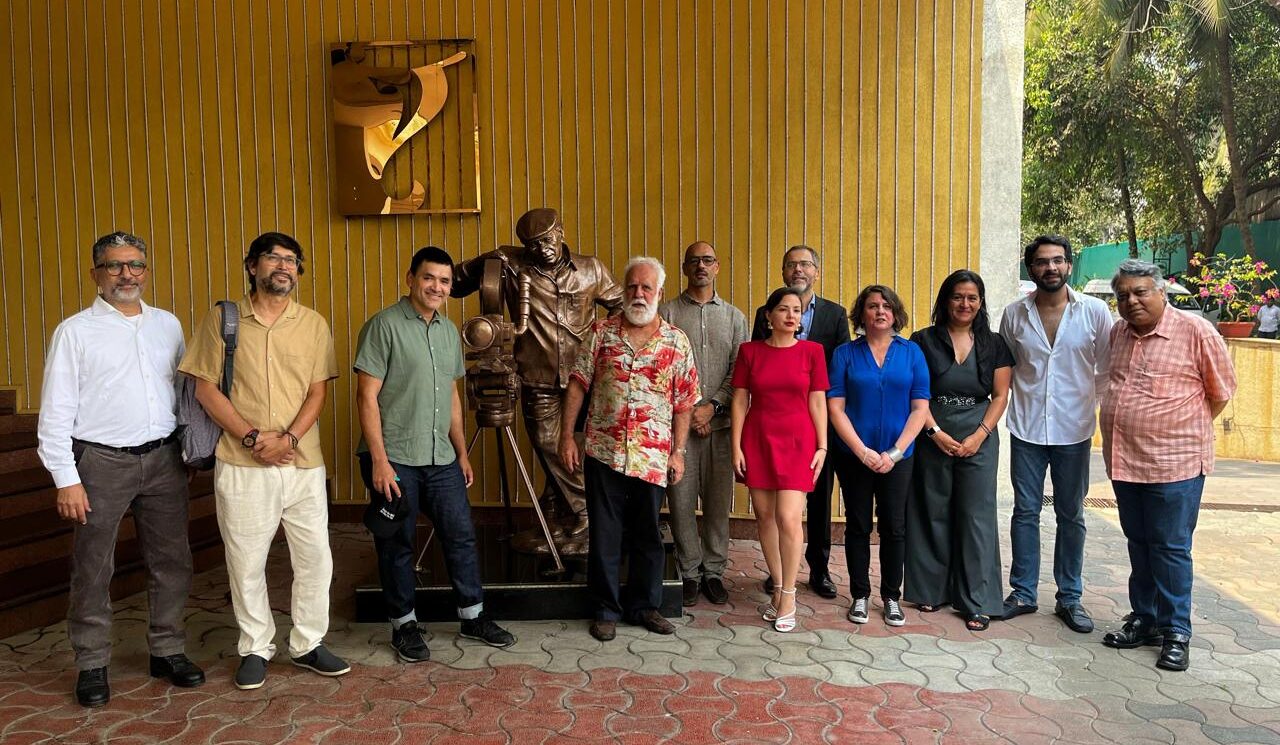• During the first week of April, a State visit to India marked a significant opportunity for the development of the Chilean documentary industry in connection with Bollywood.
• The delegation accompanying President Gabriel Boric included key figures from the cultural and creative industries, such as Carolina Arredondo, Minister of Culture, Arts, and Heritage; Ignacio Fernández, National Director of ProChile; and José Miguel Benavente, Vice President of CORFO.
• Also present was Paula Ossandón, director of Chiledoc, who participated in several official activities, including Shoot in Chile, an event promoting the country as a prime destination for audiovisual production.

Between April 1 and 5, President Boric and his delegation visited the cities of New Delhi, Bangalore, and Mumbai—the latter regarded as the epicenter of the Indian film industry, with hundreds of productions each year.
In the words of Paula Ossandón: “India is emerging as the world’s fifth-largest economy, and its film industry, known as Bollywood, is a narrative superpower of the Global South, with one of the highest production volumes and annual revenues reaching US$1.2 billion. Each year, between 1,500 and 2,000 films are produced, of which approximately 250 to 500 are documentaries.”
Shoot in Chile was one of the official events attended by the presidential delegation—an exclusive gathering that brought together renowned leaders from the Indian film industry, creating networking opportunities focused on strengthening collaboration within the audiovisual sector.
“In Mumbai—the cradle of Indian audiovisual production—the Minister of Cultures and Indian authorities expressed their willingness to establish a film co-production agreement that would foster commercial partnerships. Shoot in Chile was also relaunched there, along with the announcement of the reactivation of the Film Commission—initiatives aimed at promoting Chilean locations as destinations for Indian and international shoots, as well as encouraging the hiring of local services,” Ossandón stated.
In the case of CORFO, the Investment Promotion Instrument (IFI) is being promoted as part of the High-Impact Audiovisual Investment Support Program, which offers partial reimbursements for foreign productions. Its goal is to increase the number of international audiovisual productions carried out in Chile and, in doing so, contribute to investment, job creation, and positioning the country as an attractive destination for the industry.
According to Paula Ossandón, “All of this represents a major growth opportunity for the national market. Chile’s political stability, along with the relationship and support the State provides to the audiovisual sector throughout its production, distribution, and internationalization chain, ‘inspires trust,’ in the words of Indian producers. But business takes time to develop, and this is only the beginning of a long journey to position our cinema there.”